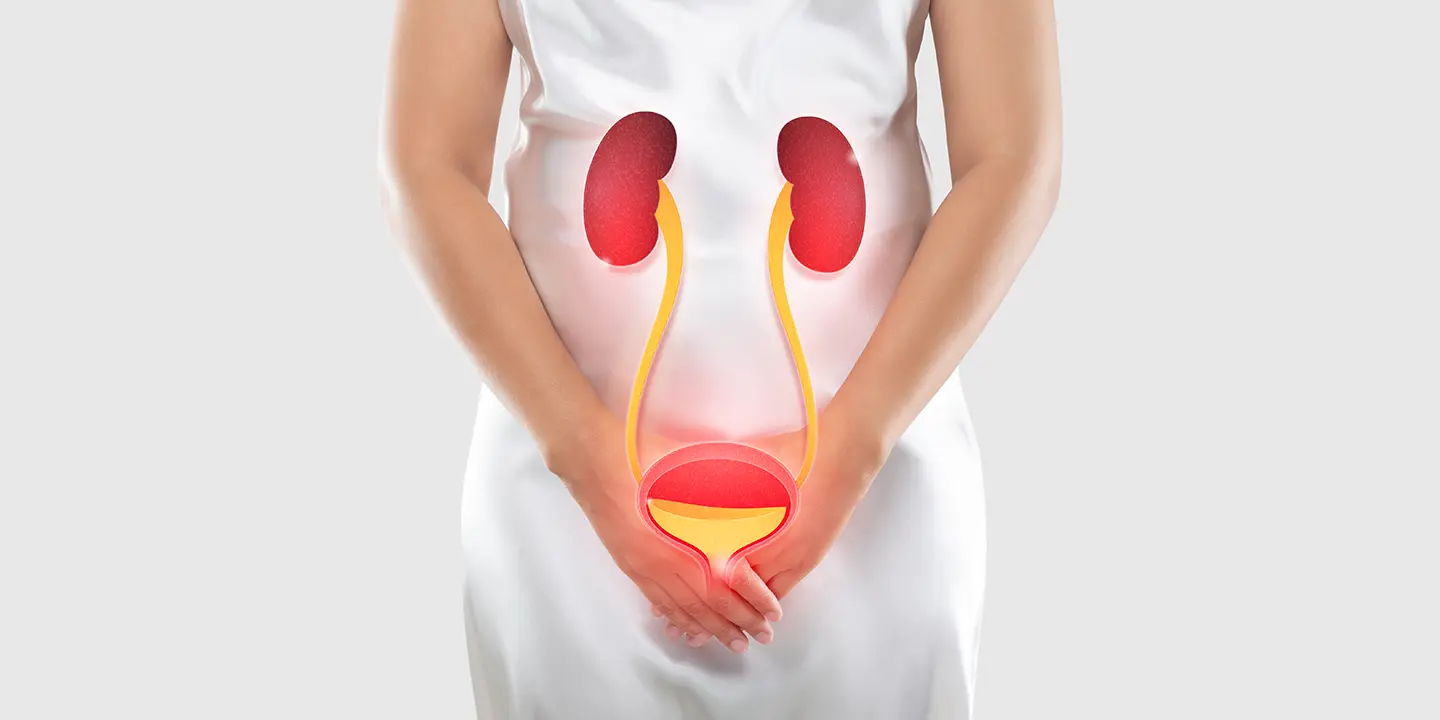
Risk content: A miscarriage can be one of the most devastating experiences. It is even more traumatic if a couple has to deal with one after another. Although this is not such a common condition, however having three or more miscarriages, one after another will need the intervention of a gynecologist who will help you to detect the root cause and manage this recurrent miscarriage. One or even two miscarriages do not indicate future infertility, but it may leave patients worried and questioning their ability to give birth. It is best to consult an expert gynecologist as there are many miscarriage treatments available that involve lifestyle changes, medications, surgery, etc, to reduce the risk of future miscarriages. Schedule your appointment with QUEEN’S GYNECOLOGY to consult the cause of miscarriage with the best gynecologist in Delhi. However, the miscarriage treatment depends upon the type and cause of miscarriage; the experts here will evaluate and examine the cause and offer you appropriate treatment for a successful pregnancy in the future.
In this Article
- 1 Miscarriage – a most distressing and deeply personal experience
- 2 Types of miscarriages
- 3 Miscarriage causes
- 4 Risk factors of miscarriage
- 5 Symptoms of miscarriage
- 6 Diagnose of miscarriage – The tests
- 7 Miscarriage treatments
- 8 How QUEEN’S GYNECOLOGY can help you to reduce miscarriages?
- 9 Conclusion
Miscarriage – a most distressing and deeply personal experience
Miscarriage is when a baby is lost before 20 weeks of pregnancy; however, losing a baby after 20 weeks is termed stillbirth. About one out of five pregnancies end in miscarriage before 20 weeks; many others face miscarriage without knowing they are pregnant. Loss of early pregnancy more than once or twice during the first 20 weeks is known as recurrent pregnancy loss.
Types of miscarriages
It may take many weeks to a month to recover from a miscarriage. The timeline varies and depends on the individual, depending on the type of miscarriage that she experiences, and whether she needs medical intervention to help pass the pregnancy tissue. Your health provider will perform tests to diagnose which type of miscarriage you have as treatment depends upon the type of miscarriage and signs of miscarriage.
- Missed miscarriage: A type of miscarriage in which a person loses the pregnancy but is unaware that it happened. There are no signs of miscarriage early phase, but the ultrasound may confirm that the fetus has a heartbeat.
- Complete miscarriage: It is pregnancy loss, and the uterus is empty. You will experience early miscarriage of blood and pass fetal tissue. A doctor will also determine this miscarriage through ultrasound.
- Recurrent miscarriage: It is a condition when a person experiences two or more miscarriages one after another consecutively; however, it affects about one percent of couples.
- Incomplete miscarriage: It is a type of miscarriage in which a miscarriage begins, but some pregnancy tissue stays in the womb.
- Stillbirth: It is also a type of miscarriage after 20 weeks of pregnancy.
- Early miscarriage: It is a miscarriage that happens when pregnancy is lost during the first trimester, i.e., within 3 months of being pregnant. It is one of the most common types of pregnancy.
- Late miscarriage: It is the type of pregnancy lost after 12 weeks but occurs before 24 weeks. There are about one to two percent of cases in which pregnancy occurs.
Related Blog: Everything About Miscarriage And Getting Pregnant Again
Miscarriage causes
Miscarriages are common, but sometimes causes of early miscarriage cannot be known, and it is difficult to determine the exact cause. The risk of pregnancy loss is more during the early pregnancy the first trimester, as about 80 percent of miscarriage occurs early. The risk of miscarriage decreases after twelve weeks. There are many miscarriage causes, including diabetes, thyroid disorders, genetic abnormalities, diabetes, immunological disorders, medications, and more. Some most common causes of miscarriage in early pregnancy are :
- Chromosome abnormalities
Most pregnancy losses are due to chromosome abnormalities, as many have more chromosomes that prevent embryos from fully developing. This problem occurs by chance during the cell division process.
- Physical issues
All other causes of miscarriage come under physical issues. It is another miscarriage caused by a problem with the placenta, the abnormally shaped uterus or cervix, or a problem with sperm.
- Infection
Certain types of infection can cause miscarriage, like food poisoning. STIs are also responsible for miscarriage sometimes.
- Injury
Any kind of trauma or injury can also lead to miscarriage. Injuries like accidents can damage the fetus leading to early or recurrent pregnancy loss.
Risk factors of miscarriage
You are at more risk of miscarriage :
- If your age is age 40 or older
- If you have a history of prior miscarriages, you are at risk of recurrent miscarriages.
- If you have an abnormality in the shape of the uterus
- if you have fibroids
- Or have a blood-clotting disorder termed antiphospholipid syndrome
- If you have high blood pressure or uncontrollable diabetes
- If you have kidney disease or lupus
- If you have a sexually transmitted infection like gonorrhea or syphilis
- If you are HIV-positive
- If you get the German measles named rubella
- If you have more weight or else you are underweight or malnourished
- If you don’t have proper lifestyle habits and consume more than 300 mg of caffeine or smoke daily.
Symptoms of miscarriage
One of the main signs of miscarriage is vaginal spotting or bleeding. Many other signs of miscarriage early stages are :
- Pain and cramping in the abdomen
- Weight loss
- Mild or severe back pain
- Fluid discharge from the vagina
- Clotted discharge from the vagina
- Feeling faint
- Contractions
- White, pink mucus
- Minimum signs of pregnancy
If you are expecting and experiencing any of the above-listed symptoms, including early miscarriage blood, then it is best to immediately contact your doctor, midwife, or antenatal clinic. QUEEN’S GYNECOLOGY is the right place for you. However, not all bleeding during pregnancy means it is an early miscarriage of blood. As many times the pregnancy continues in a normal way after that too. However, your gynecologist will check to see whether you had a miscarriage. If you pass large clots, your doctor will check and confirm it as a miscarriage.
Diagnose of miscarriage – The tests
To check and determine whether you have a miscarriage or not, the doctor will perform certain tests :
- An ultrasound test is done by using sound waves to check the heartbeat of a baby.
- A pelvic examination test checks a person’s cervix as it dilates.
- Blood tests are done to look for pregnancy hormones in the blood to compare the units with history.
- The doctor also does tissue tests so that if any tissue remains in the body, it will be sent and tested in a lab to confirm miscarriage.
- A chromosome test is done if you have recurrent miscarriages. The test will determine that your partner’s genes are the miscarriage causes.
Miscarriage treatments
Miscarriage Treatments depend upon their causes. If your mother’s miscarriage is complete, your uterus will fully expel all tissues, and no treatment is needed. However, experts will advise some lifestyle changes in case of recurrent pregnancy loss. It can involve medications, surgery, or lifestyle changes to increase the chances of pregnancy. Females with specific conditions associated with recurrent miscarriages might need medical or surgical treatment to lower the risk of future miscarriages. with proper treatment and followed by the best gynecologist. Even after three recurrent miscarriages, women have a 60 to 80 percent chance of conceiving successfully and carrying a healthy full-time pregnancy. However, women can continue to conceive naturally; in some cases, doctors may suggest treatments to help reduce the chances of future miscarriage.
- Certain surgical options help to fix issues with a septate uterus and help to get rid of fibroids or scar tissue problems; surgical corrections are available at QUEEN’S GYNECOLOGY and are often the treatment choice for anatomical issues to improve birth rates.
- If a patient is diagnosed with an autoimmune issue like APs, the gynecologist will recommend blood-thinning medications; however, in a few cases, patients can have blood-thinning medication during pregnancy to reduce miscarriage risk. Have a prescribed medication by the doctor because of the increased chance of severe bleeding problems.
- Patients with abnormal sugar levels. Hormonal imbalances and thyroid issues can improve their chances of getting pregnant and having a healthy, full-term pregnancy. The expert gynecologist gives medications to activate the dopamine receptors in the brain.
- If a patient finds a chromosome issue like translocation, they will need genetic counseling. Couples with the probe conceive healthy pregnancies naturally, but doctors, in some cases, might also suggest fertility treatments like IVF, PGD, etc.
Making good lifestyle choices will assist you maintain a healthy weight and naturally lead to healthy full-time pregnancy. Avoiding smoking and limiting alcohol and caffeine can help you to decrease the risk of recurrent miscarriage.
How QUEEN’S GYNECOLOGY can help you to reduce miscarriages?
One of the most common concerns post-miscarriage is that it might happen all over again. However, if you have had one miscarriage, the next pregnancy will be normal with the help of an expert gynecologist. In your next pregnancy, visiting a gynecologist and having an ultrasound at about seven weeks is best. If the ultrasound is done early, it may cause uncertainty and cause unnecessary tension and concern. QUEEN’S GYNECOLOGY is among the best clinics in Delhi and is well-known for handling all types of pregnancies. They have a team of highly experienced maternity doctors that handle all pregnancy types and assist patients from the first day to attain a healthy full-term pregnancy. Be sure to discuss with your doctor if you experience recurrent pregnancy loss or if you experience any signs of pregnancy after miscarriage. While up to 70 percent of recurrent miscarriages may have unknown causes, some health issues may put you at greater risk of loss. To prevent these signs of miscarriage, it is best to consult the gynecologist to determine the right treatment options for the underlying cause, as it may help you get and have a healthy full-term pregnancy.
Conclusion
After a miscarriage, there is no right way to feel normal as before, as it takes time to adjust, some couples are in grief which is very common for their loss, and many others respond differently. Some have mixed feelings about getting pregnant again. Some decide that they want to try again, while others need time. If you are feeling anxious about recurrent miscarriage expert gynecologist will help you with that by offering proper treatment and advice in terms of lifestyle changes to increase your probability of getting pregnant and reducing signs of future miscarriage. Expert gynecologist at QUEEN’S GYNECOLOGY We’ve talked a lot to help you be physically ready for pregnancy after miscarriage. But will also consider your mental health and advise you to give yourself time to get ready again after a miscarriage.


























































































































































































